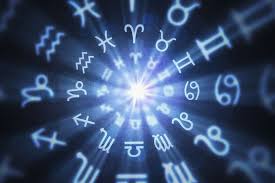Vedic vs Western Astrology. When you think of astrology, you might automatically think of the twelve star signs and western horoscopes, but this is not the only system of astrology in existence. Vedic astrology is the Hindu version – and it’s reported to be much older than the system westerners are used to. Jyotish – the science of light, originated in India and those who understand it believe they can confidently see the future mapped out. Vedic comes from ‘Vedas’ which is Sanskrit for knowledge, and is named after the Vedas – Hindu texts thought to be of divine origin.
The three main branches of Hindu astrology
- Siddhānta: Indian Astronomy, which branches from the study of the Vedas. Siddhartha is the study of astronomy, the practical and scientific study of the star system.
- Samhitā: Astrology which predicts world events, also known as mundane astrology. Predictions include those such as future wars, natural disasters, and electional astrology (practiced to gather information about the best time to undertake a task)
- Horā: Predictive astrology – reading an individual’s stars on their birth date.
How does Vedic astrology compare with other forms of astrology?
All types of astrology have one thing in common at least; they aim to predict the future using the stars, whether it’s world events, or the future of the individual. Their methods differ though, and here are some of their differences:
Vedic astrology uses the zodiac known in the western world, but the western horoscope starts with the sun, and measures the tropics of Cancer and Capricorn, which make the star maps and basis for the western horoscopes. When western astrology was created, the ancients thought that the stars would remain fixed. Vedic astrology does not believe this method is accurate, due to ‘the precession of the equinoxes’ which is the reason we lose a day every seventy-two years. We lose this day due to the natural wobbles in the rotation of the Earth. Therefore, every seventy-two years, the horoscope must move back by one whole day so, for example, a Taurus may find themselves an Aries in the Vedic charts, and a Sagittarius may be a Scorpio. It all depends on exactly when you were born. This method is called the ‘sidereal method.’
Chinese astrology is different again, as their zodiac utilises just animals to represent the twelve yearly rotations. They also have five elements. Whereas Vedic and western astrology have earth, air, fire and water, the Chinese tradition includes metal, adding a whole other element to the mix.
How a Vedic reading can help you
If you are in need of some guidance in your life, then a Vedic astrology reading may help you. It can show you best path forward if you are confused, or simply curious about what the future will bring. If you are interested in astrology, but find that your horoscope bears no relation to your life, then it’s worth having a Vedic chart created for you. It could be that you think you’re a Libra, when you are a Virgo.
How to learn more
Vedic astrology is a science, not a random prediction, and you can learn the processes. There is software available that will calculate predictions for you. Some are free, and some you can purchase. The software can help you with things such as muhurtas – a specific measurement of time in which the Vedas recommends you start or avoid a venture. The software can also help with compatibility ratings, baby names and all manner of future-gazing activities. The are many set-ups available and it’s worth researching which would suit you best.
Alongside the software, it’s possible to study Jyotish with a teacher. The benefits of this method are that you get personal tuition and guidance. Understanding astrology and the Vedas is complicated, and a real-life teacher will best guide you. If you can’t find a local teacher, then there are many online courses available. Online courses can suit you better, because you work to your own timetable and don’t need to travel. Those with busy lives and an interest in Vedic astrology may find an online course the most suitable for them.
Vedic Controversy – is it or isn’t it ‘Vedic’
There is some controversy surrounding Vedic astrology. Some believe that it isn’t ‘Vedic’ at all, and here’s why. Vedic astrologers claim that the Vedic method is drawn from the Vedas – the Hindu spiritual teachings, which were revealed by the divine. Therefore, it is blessed and truthful because it was revealed by the divine authority. Criticism arises because a Vedic astrology student is not expected to question or criticise the discipline in any way, rather they are expected to learn this divine knowledge, with no independent thought on their part. This leads to the notion that Vedic astrology is no more than a disciple led art, rather than a science such as western astrology. Hindu scholars also report that no-where in the Vedas is predictive astrology mentioned, giving rise to the assumption that it therefore has no roots in the ancient Hindu tradition and in the divine revelation.
Want to learn about getting a FREE astrology reading, what it entails, what you may learn? Read my post about it here: Get a Free Astrology Reading That Will Change Your Life!
